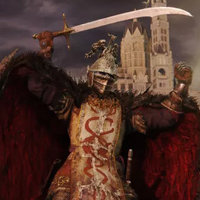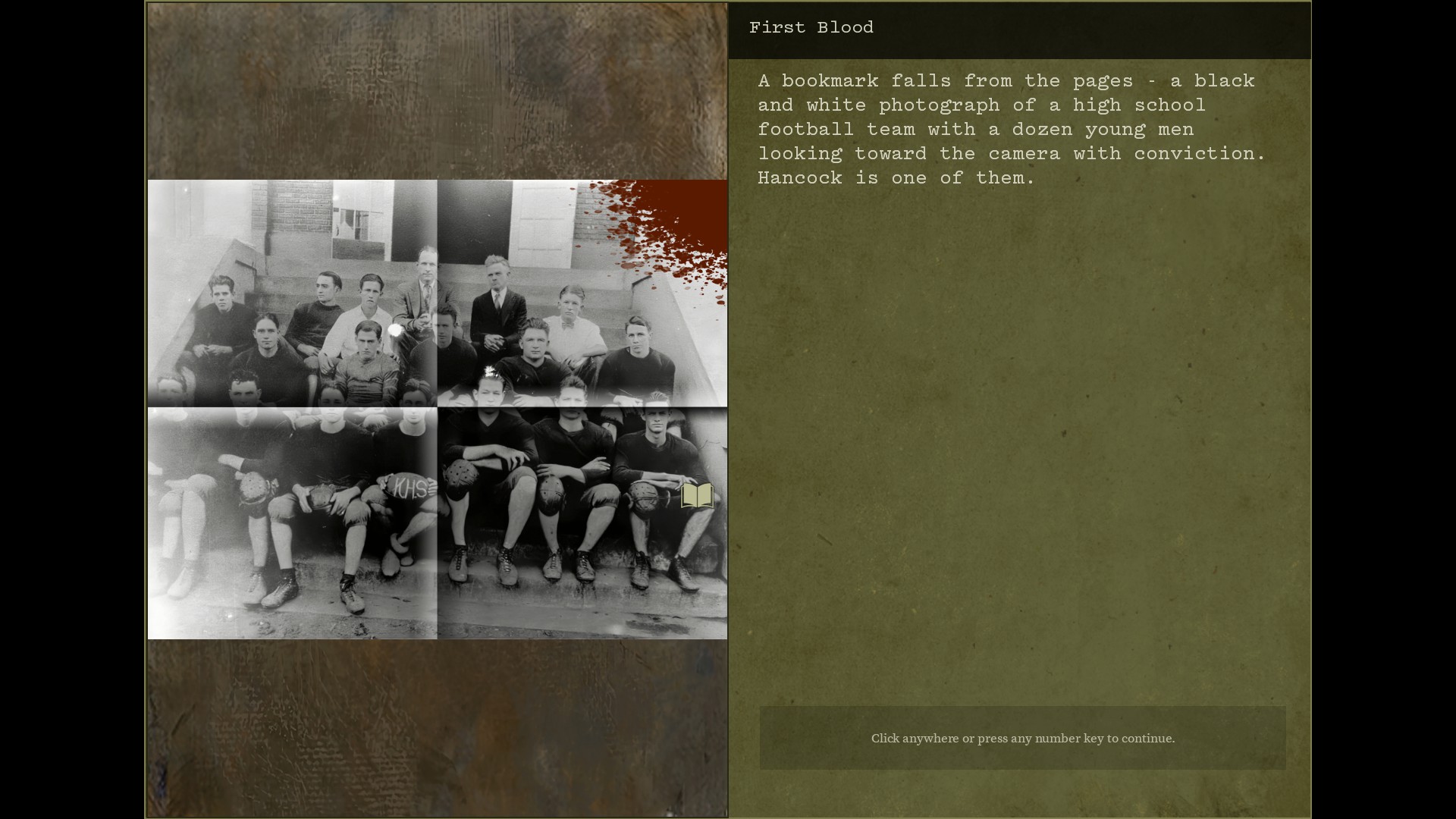
As much as I'd call myself a strategy enthusiast, it's always been difficult for me to get into the really crunchy, grognardy, rivet-counting wargames like Gary Grigsby's War in the East or Combat Mission. Of all of the recent Paradox grand strategy games, Hearts of Iron 4 is the one I have the fewest hours in. That ultimately comes down to the fact that I am, at heart, a roleplay dork. I care more about whether two characters are going to kiss than what caliber cannon is fitted on my medium tank.
So from the first time I saw Burden of Command—a new take on World War 2 tactics that bills itself as a "leadership RPG"—I was immediately intrigued. And after stumbling through its somewhat cumbersome tutorial, I found that it was just what I'd been waiting for.
"RPG" might be a bit off the mark. The way I would actually describe Burden of Command is as a tactical World War 2 visual novel, which is just as offbeat and interesting as it sounds. Taking on the role of an American lieutenant in 1942 and commanding a platoon through basic training and eventually the first wave of Yanks to land in North Africa, there are two main modes of play woven together.
You have tactical, grid-based combat with line of sight, cover, and suppression that could be mistaken for one of those grognard games I mentioned. But you also have text-based interstitials featuring colorized period photography, and occasionally even taped interviews with real WW2 veterans. These include many small and large decisions that can affect how you develop as an officer and the fate of your men.
Your officer has a few personality traits that exist almost entirely just for flavor:
- Sarcasm, denoting how often you deal with stress like a Buffy character
- Directness, measuring your inclination to skip the formalities and get to the point of a matter
- And verbosity, which affects how likely you are to pipe up during a briefing scene rather than just clicking through it to get to the next mission.
Your reputation for any of the above might be commented on by other characters and earn you nicknames like "chatterbox."
More impactful are the approaches your character adopts, which can each give mechanical bonuses in battle and unlock options in certain narrative decisions. You can be an officer who leads by the book, focusing on Discipline, for example. Or you can face every challenge with a sort of heroic bravado, specializing in Zeal. I started out with a core value of Compassionate, hoping to prioritize saving as many lives as I could.
The biggest gaming news, reviews and hardware deals
Keep up to date with the most important stories and the best deals, as picked by the PC Gamer team.
But I quickly pivoted to the Clever approach, as I found that was actually the way to save the most lives at the end of the day. Concern and an open heart aren't enough. You have to be crafty and effective.
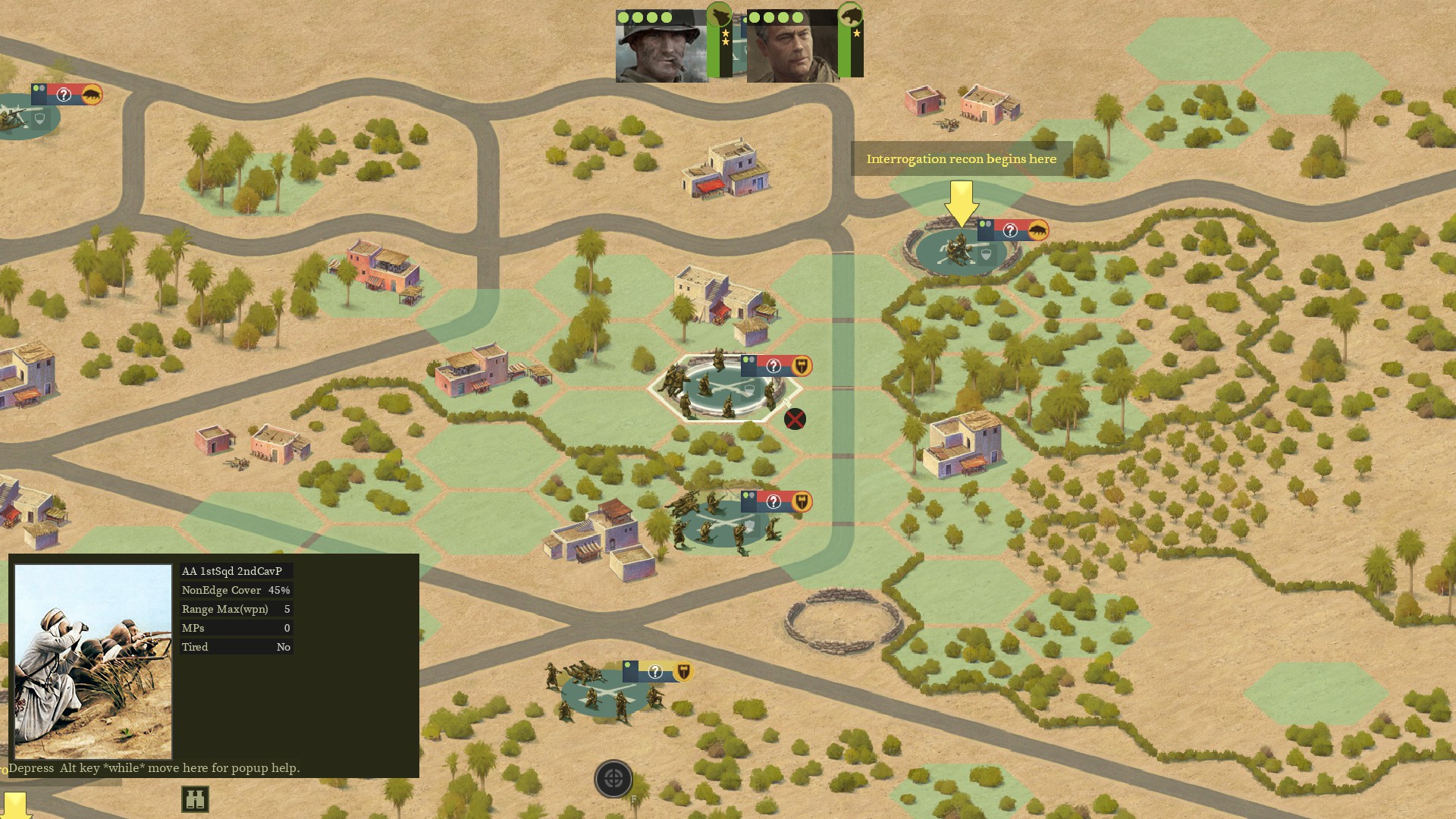
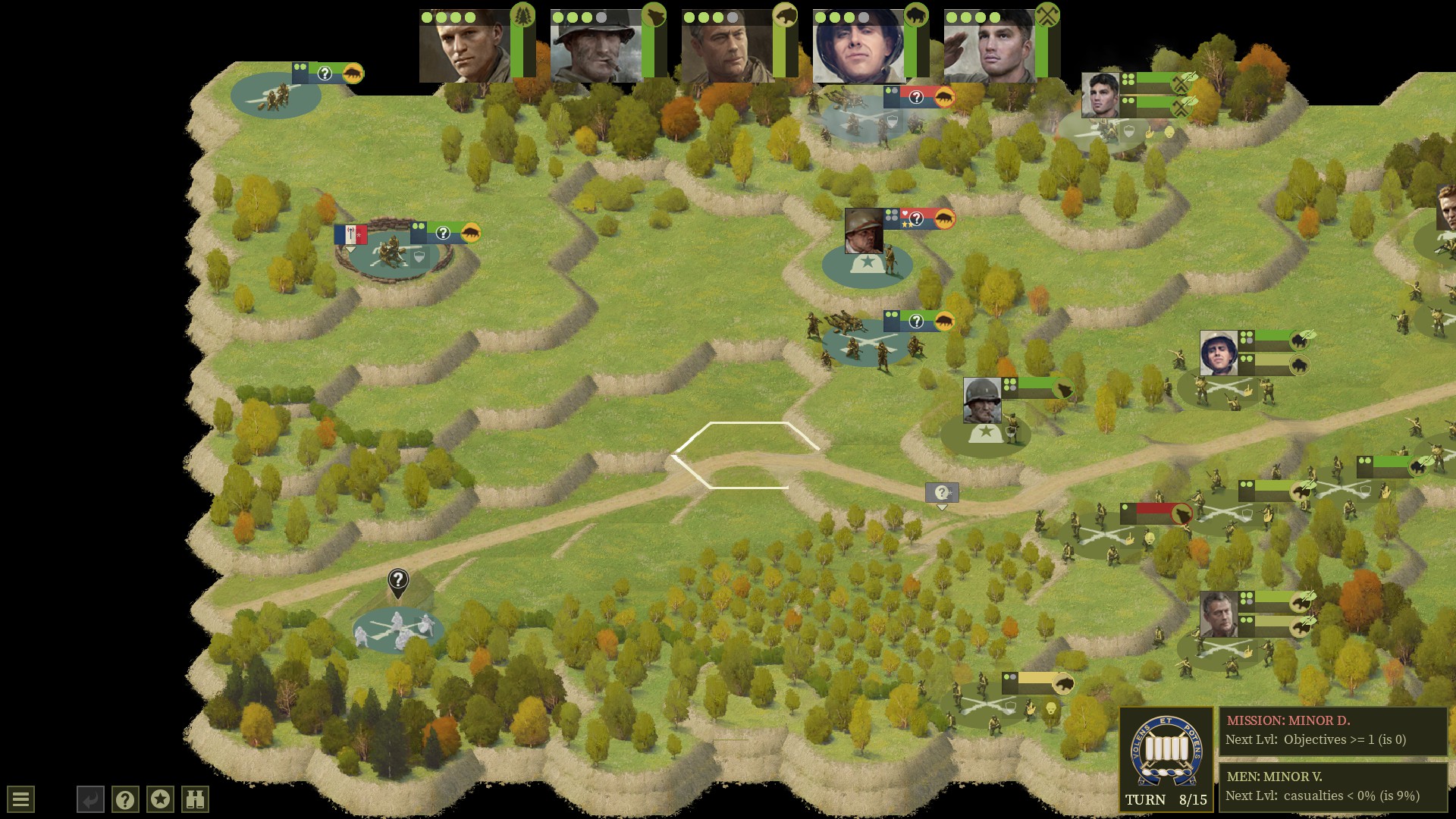
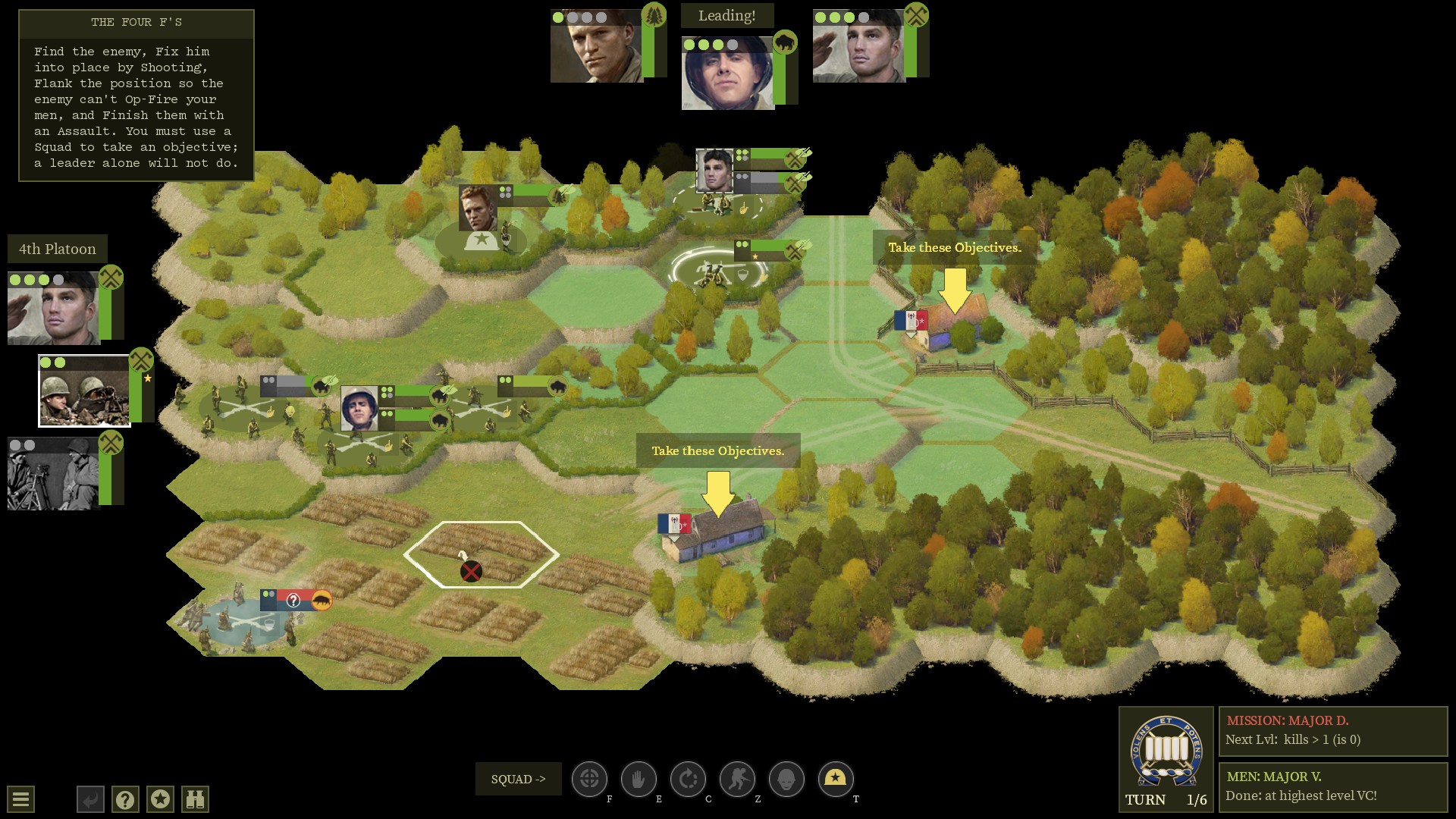
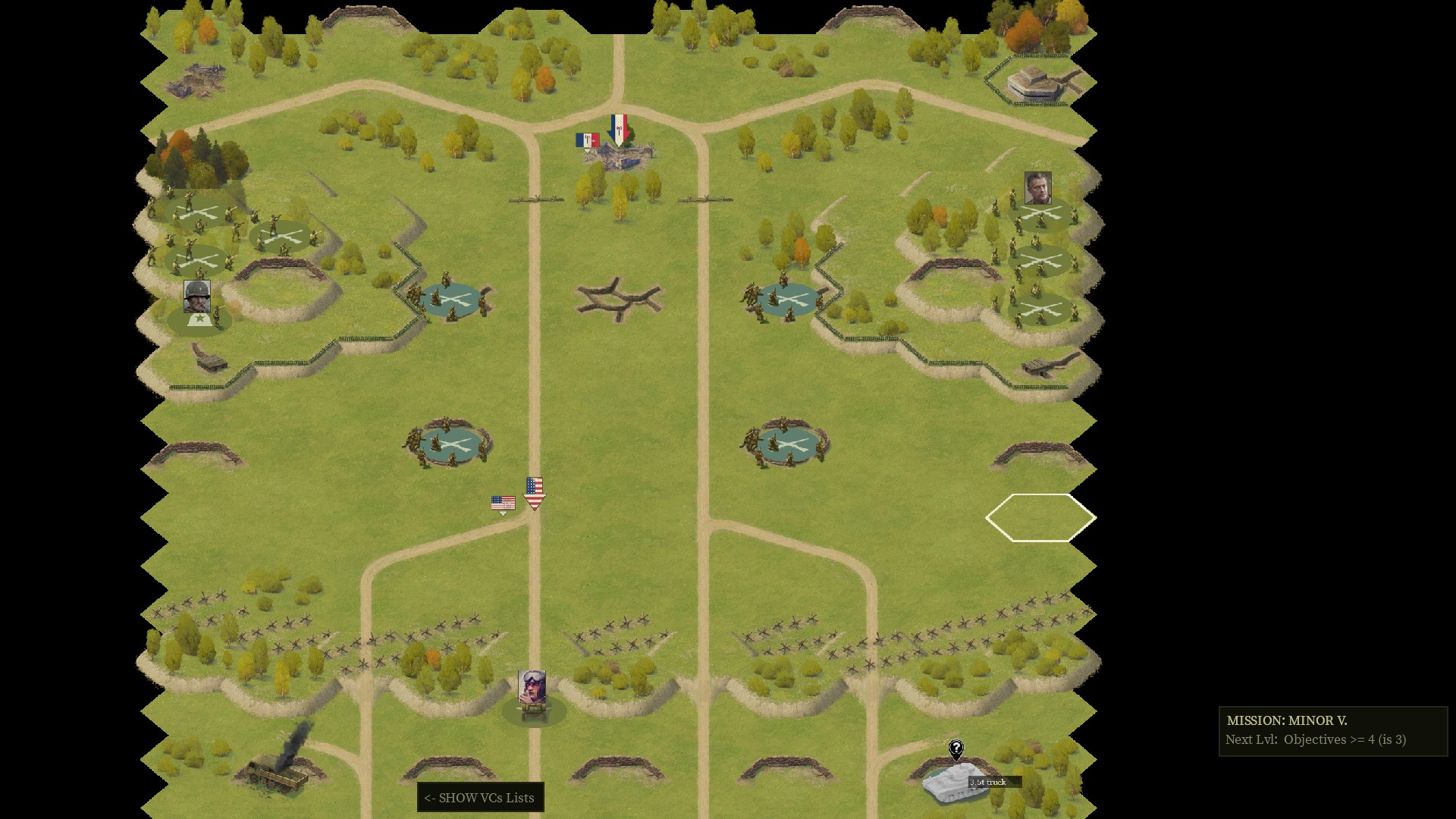
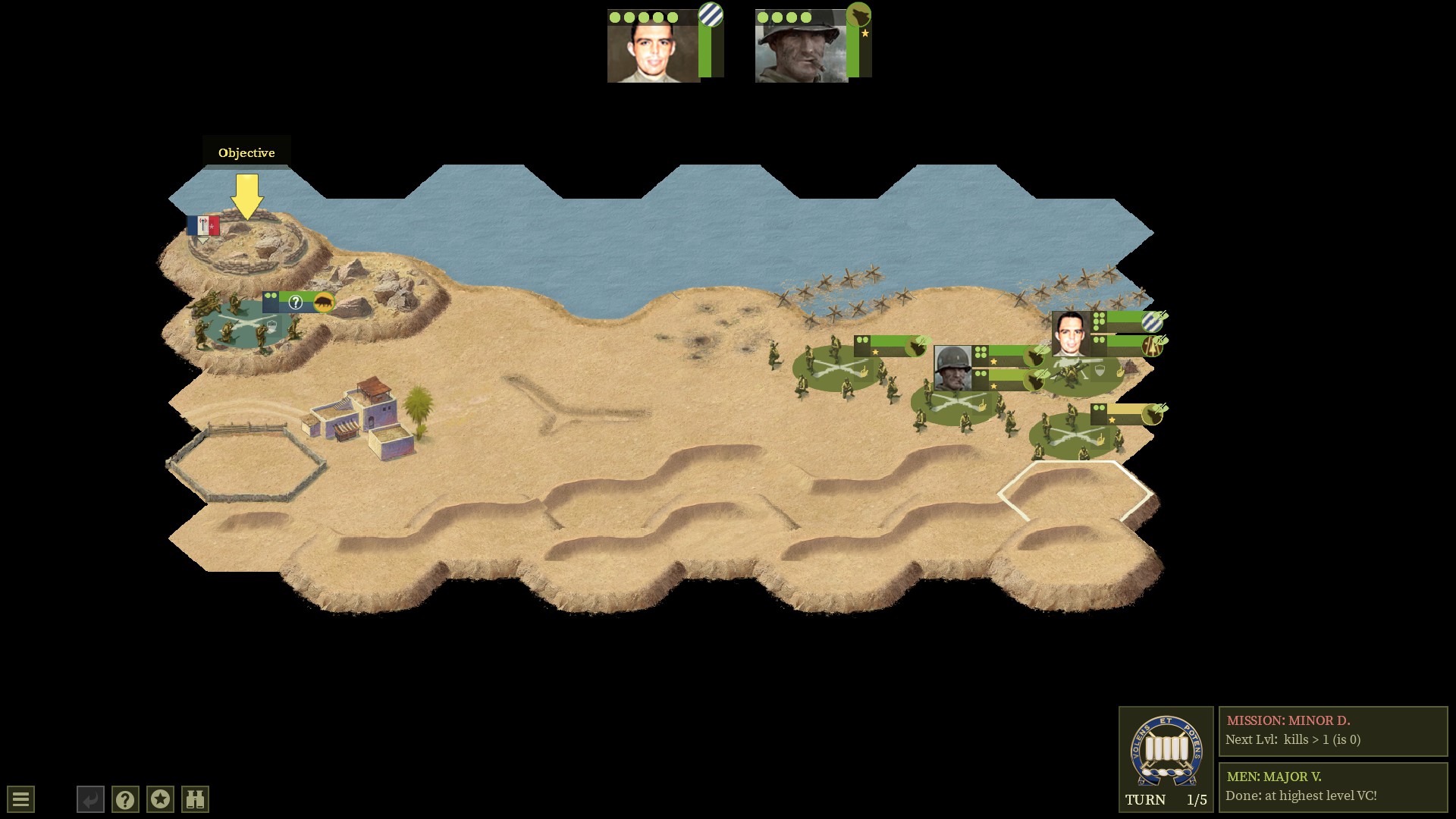
The US Rifle Company you'll be commanding is led by a captain and composed of four platoons that each have a lieutenant in charge, and these five officers are the only ones who have visible combat stats. There are also a handful of named sergeants and privates, however, whose under-the-hood personalities can be shaped by your decisions in ways that can affect how they behave in the future. These characters, notably, can die—not just on the battlefield, but as the result of narrative decisions. I lost one of my sergeants in a tragic training accident before we even shipped out, seemingly to teach me a lesson about how vulnerable any named soldier is.
Squads in combat are a bit more abstract, though. They don't actually have a set number of guys in them that can be killed. That goes for both you and the enemy. Rather, each has a morale score that can be lowered temporarily by battlefield conditions like suppressing fire, or for the rest of the mission in the form of "casualties." These can be replaced between missions, assuming your higher-ups can be convinced that you need reinforcement.
This ties into one of the most interesting ways Burden of Command sets itself apart as a tactical game. Generally, a squad cannot be killed just by shooting at it. To remove an enemy from the map entirely, you have to assault their position and force a surrender. This requires you to first lay down suppressing fire on them, which both prevents them from shooting at your assault squads as they approach and increases the chances the assault will be successful.
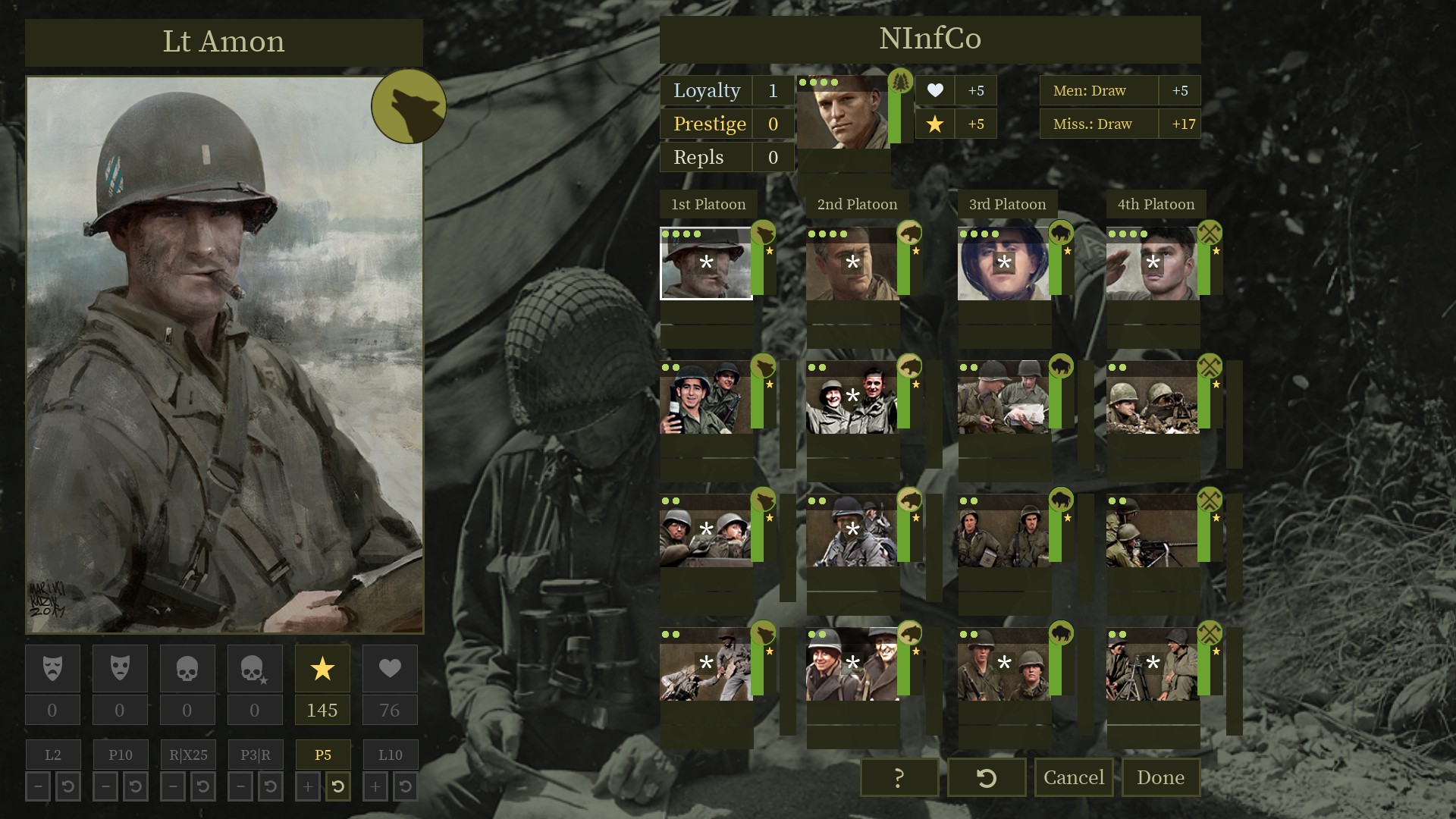
So the tempo of a battle very much follows a move-and-fire doctrine, where you have to scout out an enemy position, suppress it, then ideally flank it and go in for the assault. Your own squads, likewise, might take a lot of casualties and end up pinned down. But they won't generally be completely wiped out. You'll simply run out the turns allowed to you to finish the mission and have to accept a more dire narrative result.
Each map also has two different objectives for "Mission" and "Men." Mission is how quickly and effectively you completed the tasks the brass gave you, which earns you Prestige to use in leveling up your officers. Men is a measure of how well you treated your soldiers on the mission, primarily by minimizing casualties. This earns you Loyalty, which is used to level up your squads.
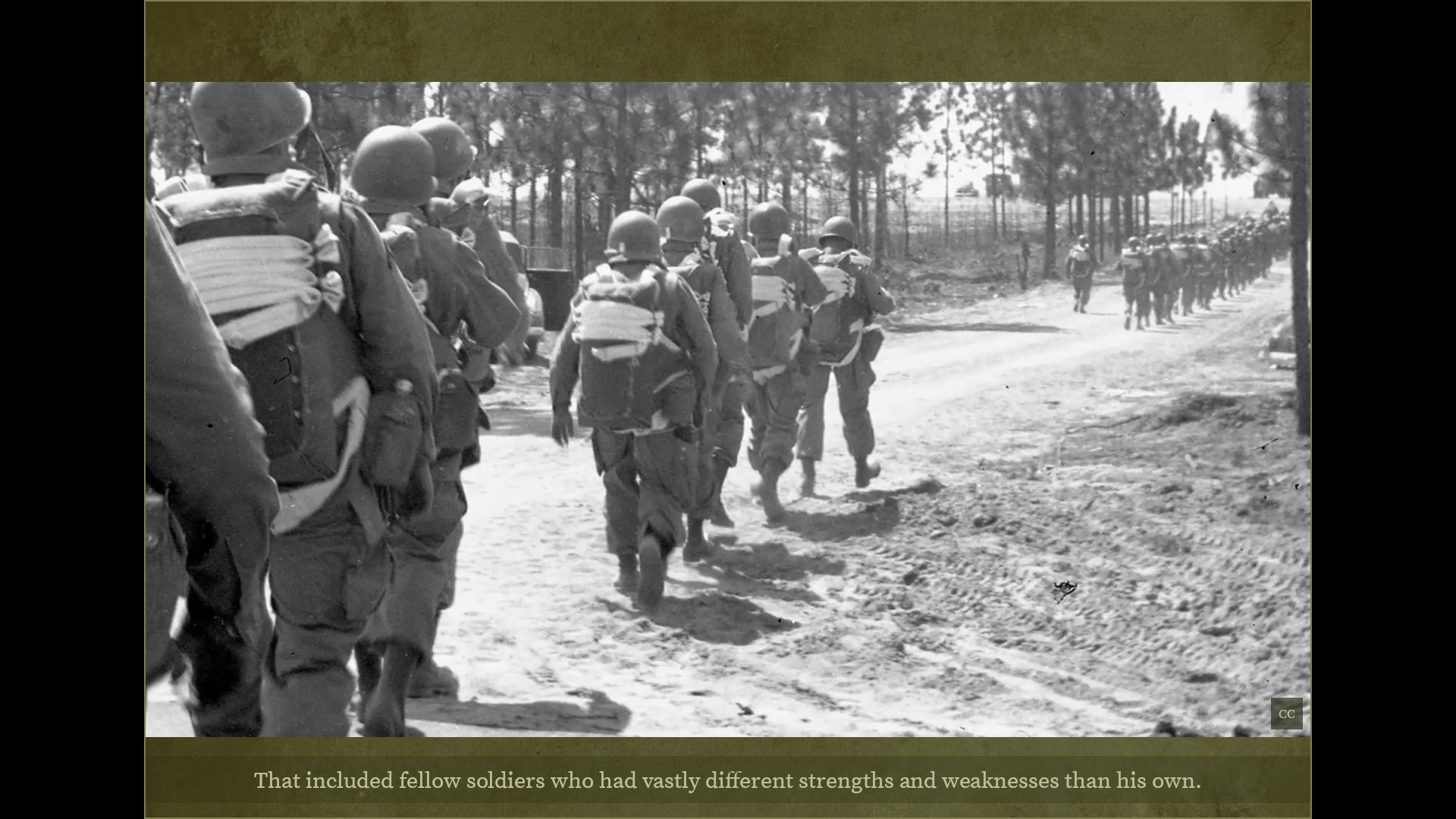
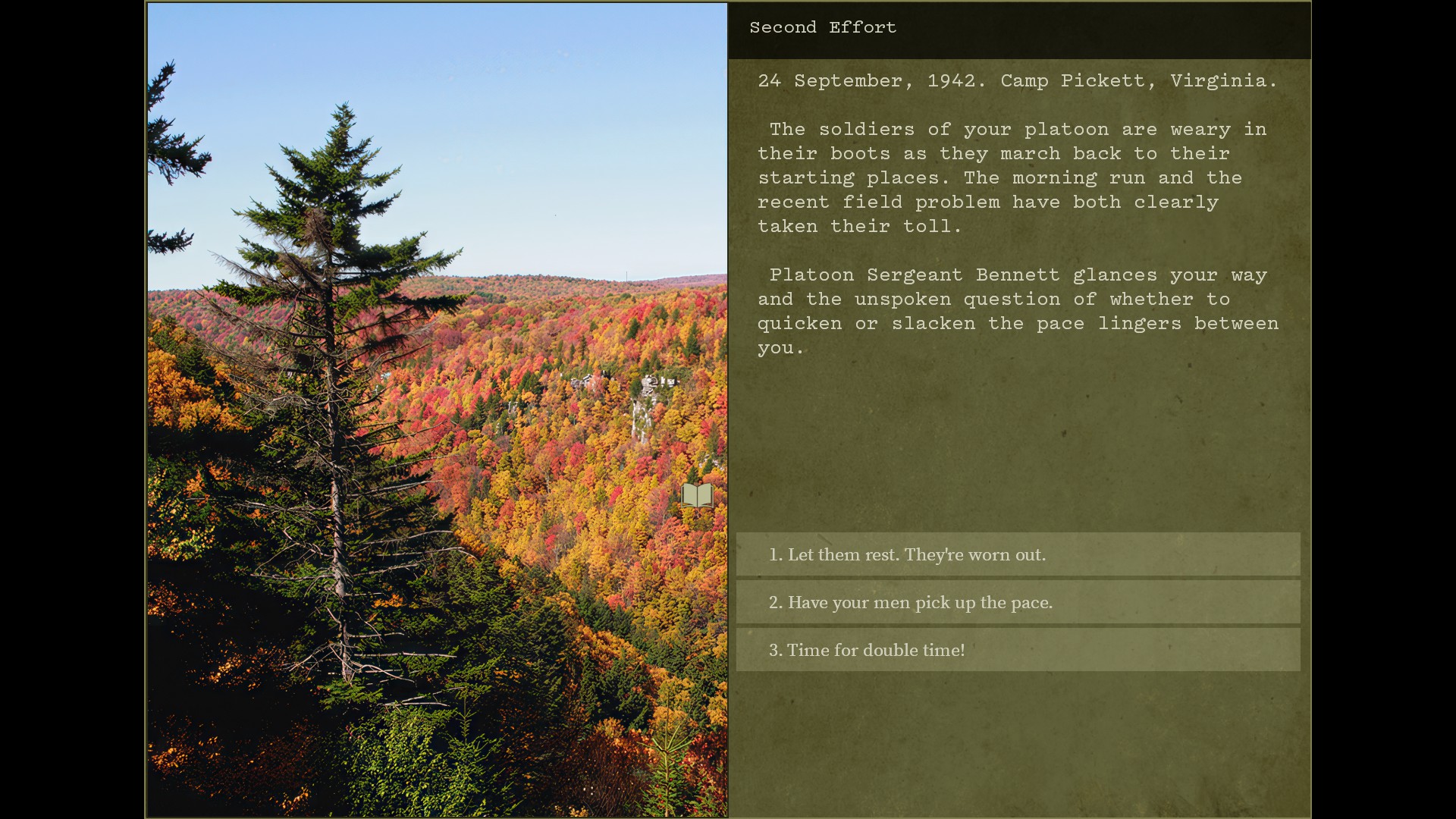
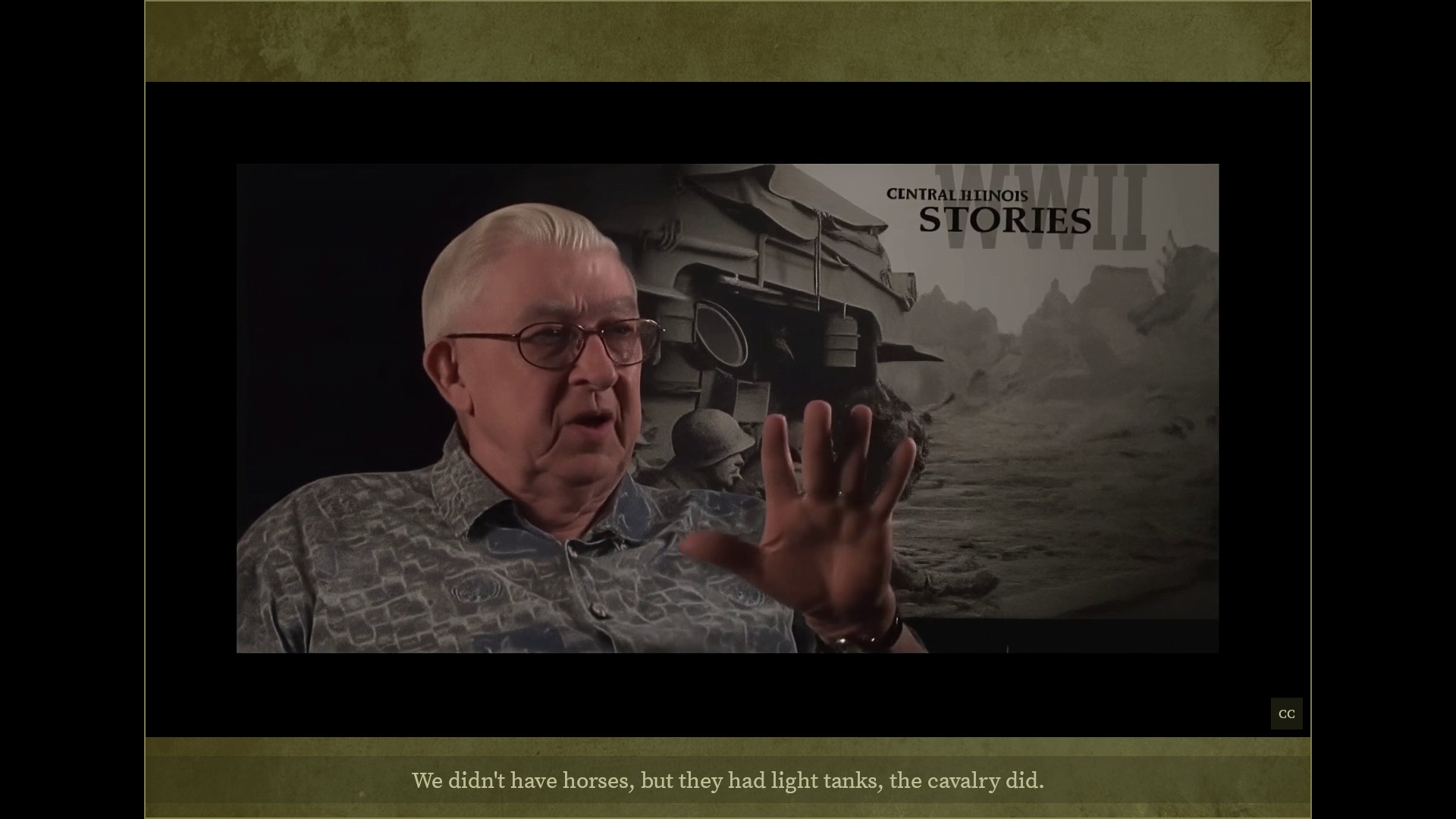
Getting high marks in both, I found, is usually easier than focusing on one or the other, since securing objectives in a timely and effective manner naturally lends itself to not taking a bunch of unnecessary losses, and vice-versa. But occasionally you will be forced to prioritize.
This all adds up to a war story that seems to be extremely branching and adaptable. I'm not sure exactly how adaptable yet, because I've only seen one path and the single auto-save and inability to restart a mission means you can't just go back and try a different choice. But based on the minute things I have seen Burden of Command react to, I'm very interested in finding out just how much the scenario might diverge if I called my shots very differently.
It really is that rare breed: a wargame for roleplayers. And while it may have me agonizing over every decision I make, that's exactly how I like it.
Best MMOs: Most massive
Best strategy games: Number crunching
Best open world games: Unlimited exploration
Best survival games: Live craft love
Best horror games: Fight or flight
Len Hafer is a freelancer and lifelong PC gamer with a specialty in strategy, RPGs, horror, and survival games. A chance encounter with Warcraft 2: Tides of Darkness changed her life forever. Today, her favorites include the grand strategy games from Paradox Interactive like Crusader Kings and Europa Universalis, and thought-provoking, story-rich RPGs like Persona 5 and Disco Elysium. She also loves history, hiking in the mountains of Colorado, and heavy metal music.
You must confirm your public display name before commenting
Please logout and then login again, you will then be prompted to enter your display name.
